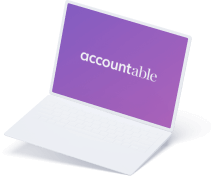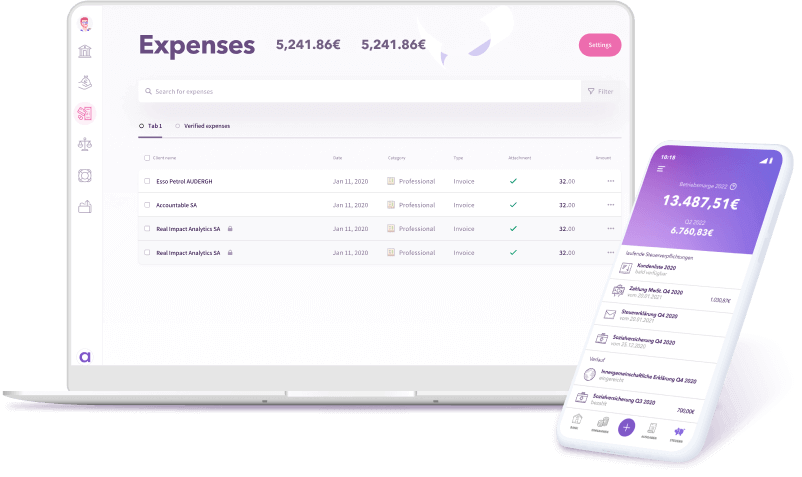
Investment for freelancers: How to build wealth when you’re self-employed
Read in 5 minutes
As a self-employed individual, you are responsible for your retirement planning. Many who find themselves in this position hope to find a safe investment that will pay off.
So, what options do you have to accumulate wealth in a predictable and sustainable way? What investment options should you explore as a beginner? And is there a particular formula for building wealth? If you are looking to invest your money, you can find essential tips on how to invest in this article.
Wealth building for the self-employed
Accumulating wealth essentially means letting your money work for you through suitable investments – in other words, investments that allow your money to grow passively. There are several reasons for building wealth. For the self-employed, retirement planning is one.
If you are self-employed, either as a business owner or a freelancer, you usually do not have to pay into the public pension system. This also means, however, that you won’t receive a basic pension when you retire. Often, self-employed individuals carry full responsibility for managing their retirement savings.
In the following section, we will go over the most important ways you can make profitable investments and explain how beginners can build up their wealth.
The financial planning pyramid
The financial planning pyramid shows which goals should be pursued first. It is a formula for building wealth that can be used as a guide for establishing financial security.
This model shows the four components of successful wealth accumulation and ranks them in order of importance. In general, the financial planning pyramid illustrates how wealth should ideally be distributed. The pyramid has the following structure:
- The foundation of the pyramid is commonly referred to as protection. This level includes insurance and retirement planning (Altersvorsorge), for example, through the mandatory state pension insurance (gesetzliche Rentenversicherung).
- Next is the nest egg, also known as liquidity reserves.
- After that is asset accumulation with secure investments.
- At the top of the pyramid is wealth accumulation through speculative investments.
A combination of several safeguards and financial investments is therefore an ideal way to build wealth over the long term. Let’s take a closer look at the different levels.
Protection
Your retirement should be a priority. You should also make sure that you have all the necessary insurance policies in place. One way to plan for your retirement is by voluntarily contributing to the gesetzliche Rente (mandatory state pension insurance system). However, in light of the current demographic shift, this path may not seem particularly appealing to young people.
The alternative option of combining Rentenversicherung (pension insurance) with asset accumulation is becoming increasingly popular. You can do this by taking a portion of the insurance premiums you have already paid and investing them. The remainder is used to avoid longevity risk. This way, you still have the bulk of your payments secured, but your capital can also generate returns until you retire.
Nest egg
It is essential to build up a liquidity reserve for unplanned expenses. As a self-employed person, you should keep 6 to 12 months of your income in liquid form in your checking account so you have a safety net for unanticipated expenses. The remaining capital can then be used for building wealth.
💡 Tip from Accountable: If you’re self-employed, you must also keep in mind that all the money you earn is not yours to keep. You should always put some of it aside so that you are able to pay your taxes. With Accountable’s tax tool, you can always see exactly how much money you need for your taxes. Find out more here.
Safe investments
You can cover part of your investment portfolio with low-risk investments. These are investments with fixed interest rates, which specify the returns that you will receive on the investment. As such, they can serve as a reliable foundation. Safe investment options are particularly appealing to those just starting to build wealth.
Fixed-term deposits, call deposits, and savings accounts are considered particularly safe. You deposit your money into an account and earn interest on it. Your capital is protected by a statutory deposit guarantee (Einlagensicherung) of up to € 100,000. Here are the main differences between the different investment types at a glance:
- In the case of a call money account (Tagesgeldkonto), there is no fixed term and money can be deposited and withdrawn flexibly.
- Fixed-term deposit savings accounts (Festgeld) are linked to a specific period of time. A predetermined interest rate applies, and you cannot access your money during the specified period of time.
- A savings account (Sparbuch) is an investment with no fixed term and variable interest rates While you can deposit and withdraw money at any time, this type of account comes with a monthly withdrawal limit.
In addition, it is also possible to lend money to governments and companies through bonds and receive fixed interest rates as the return on the investment. Building wealth through real estate is also considered safer because properties are consistently deemed to be valuable. However, you should conduct thorough research before investing in real estate as it comes with significant responsibility and risks.
Speculative investments
Speculative forms of investment offer high potential returns but always involve some level of risk. In the worst-case scenario, you could lose all your money. So while the highest possible return may sound tempting, it’s best to proceed as cautiously as possible with such investments.
Accumulating wealth through shares
Shares are a common form of investment. You can invest in individual shares and create a portfolio or accumulate assets through exchange-traded funds (ETFs).
Individual investments for professional asset accumulation are more suited to experts and less suitable for beginners. If you are already interested in these types of investments as a beginner, you should look into externally managed equity funds.
A common and cheaper alternative is an ETF savings plan (ETF-Sparpläne) via a deposit account. Make sure you use broadly diversified ETFs and keep an eye on costs. Accumulating wealth through ETFs as a long-term investment is popular because they promise a good mix of risk and return.
Diversified investing makes it easier to manage the risk. However, your investment can temporarily experience a sharp fall. Retrospective analysis shows that if you invest for a long enough period, you can always recover your losses, and the impressive compounding effect allows for long-term wealth accumulation.
Accumulating wealth through cryptocurrencies
Investing in digital currencies is considered high risk as their market performance is very dynamic. Nevertheless, Bitcoin and other cryptocurrencies are suitable for self-employed individuals looking to accumulate wealth. While it’s possible to generate high returns, you may also experience significant losses. It’s important to educate yourself about cryptocurrencies before investing in them.
Accumulating wealth through P2P lending
With peer-to-peer lending, you invest your money, as a private person, into loans to other people. With attractive interest rates, this approach can prove to be lucrative. However, it comes with the risk of borrower insolvency.
Accumulating wealth through commodities
Commodities are another investment option. For example, you can invest your money in gold, silver, oil, or agricultural commodities. You also have the possibility of accumulating wealth through ETFs that cover various commodities.
What role does age play?
As a rule, the younger you are, the more risk you can take. The determining factor in planning for your retirement is how much time you have left until you retire. Most financial investments are long-term in nature.
So how do you build wealth in your 30s, 40s or 50s? As you get older, the risk associated with accumulating wealth should decrease. Especially at around age 50, there is not enough time to compensate for fluctuations that come with investing in EFTs. At this age, it’s better to invest in bonds or real estate.
Wealth accumulation and taxes
Regulations stipulate that you must pay tax on interest, dividends and capital gains. For people whose tax filing status is single, there is a tax allowance (Steuerfreibetrag) of €1,000. For people filing taxes jointly with someone else, the allowance is €2,000. All capital gains above this amount are subject to the following deductions:
- 25% of the final withholding tax (Abgeltungssteuer)
- Solidarity surcharge (Solidaritätszuschlag) – 5.5% of the withholding tax
- Church tax (Kirchensteuer), if applicable
Taxes are only paid when gains are realised, i.e. when they are paid out. Note that a change of investment also counts as a realisation of gains, requiring you to pay taxes. Pension plans, however, are an exception, and you are not required to pay taxes if you change investments for your pension plan.
There are also different tax rules for different forms of investments. For example, real estate is exempt from tax when it is sold after a holding period of ten years. As a rule of thumb, you should inform yourself in detail about the risks, opportunities and tax obligations before investing.
💡 Tip from Accountable: Both private income and business income are taxable. With tax returns, however, you can partially deduct costly expenses from your taxable income.
Did you find what you were looking for?
Happy to hear!
Stay in the know! Leave your email to get notified about updates and our latest tips for freelancers like you.
We’re sorry to hear that.
Can you specify why this article wasn’t helpful for you?
Thank you for your response. 💜
We value your feedback and will use it to optimise our content.












